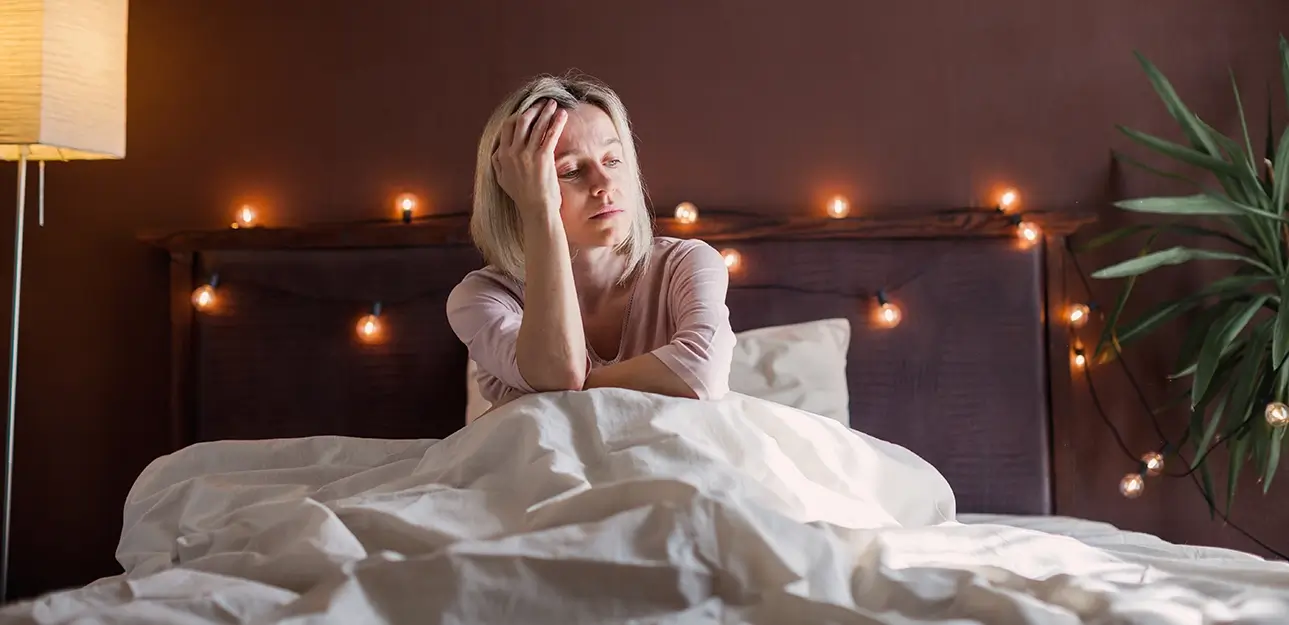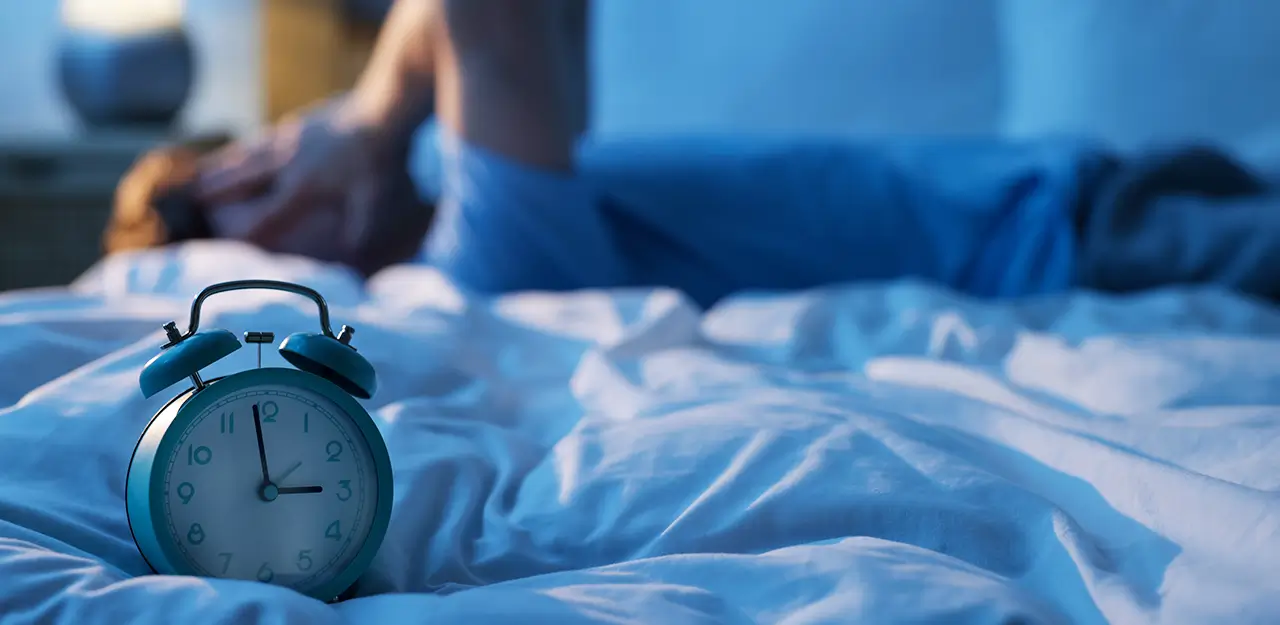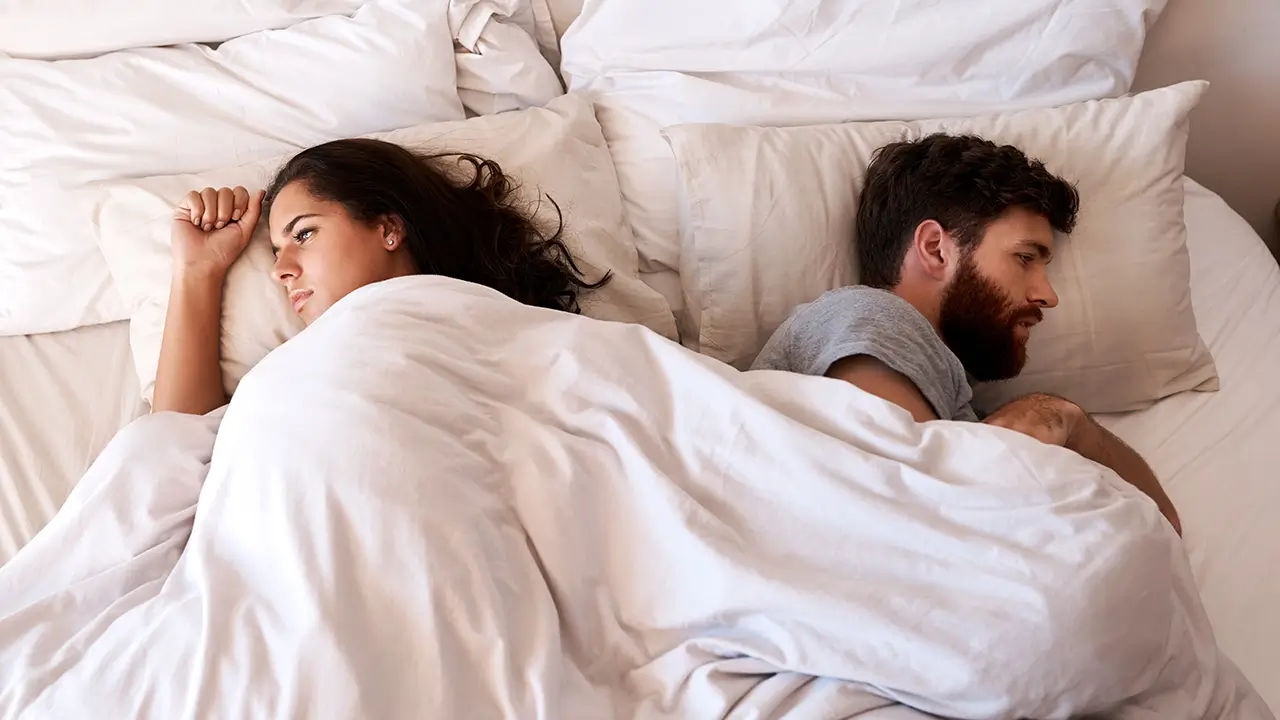
The Best Food to Fuel a Great Night’s Sleep
Written by Lucy Dodds
Struggling to sleep? Your diet could be the problem. From citrus fruit to late-night chocolate, there are foods which can stop you from sleeping.
We asked two nutrition experts to tell us which foods to eat to fuel a great night’s sleep – and which ones we should avoid. Discover the advice from Alex Ruani, Chief Science Educator at The Health Sciences Academy and Anna Mapson, Registered Nutritional Therapist from Goodness Me below.
Chrononutrition: the science of food and sleep
Chrononutrition is a new scientific field which studies the link between the food we eat and our sleep. When researching how nutrition affects sleep, scientists look to improve three things:
- Falling asleep faster, known as shortening ‘sleep onset latency’
- Sleeping more deeply throughout the night, without interruption
- Sleeping longer to reduce sleep debt
There are a few neurotransmitters (brain chemicals) involved in our sleep cycle, such as the sleep hormone, melatonin. Many of these sleep-inducing neurotransmitters come from food, so you can enhance your sleep by eating the right nutrients.
The seven-day meal plan to fuel your sleep
Based on our experts’ advice, we created the ultimate seven-day eating plan to fuel your sleep. All you have to do is tailor the timings to fit your body clock.

Now you’ve seen the meal plan, here’s the science behind it from the experts.
The top foods to solve your sleep problems
What should we be eating to get a better night’s sleep? Our experts tell us what nutrients you need and which foods to get them from.

1. Carbohydrates, like pasta and rice
To avoid spiking your blood sugars, choose complex carbs such as brown rice, wholegrains or starchy vegetables. You can also try potatoes or pasta.
Demonised by many, digestible carbohydrates may help us fall asleep faster and sleep more deeply. Carbs increase the availability of tryptophan in the brain, an amino acid which produces melatonin.
A digestible carbohydrate-rich meal two to four hours before bed can help you to fall asleep faster (shortening sleep latency) and to sleep more deeply throughout the night (improving sleep quality).
2. B vitamins from protein, such as poultry and nuts
B vitamins are vital for brain function and are involved in the production and use of melatonin and other sleep neurotransmitters. Even a mild deficiency in any of these B vitamins is associated with disordered or poorer sleep.
Vitamin B12 is mostly present in animal foods, including oysters, oily fish, poultry, eggs and dairy. Vegans and vegetarians can still aim for good-quality protein at each meal with nuts and lentils.
3. Melatonin from plant foods, like peppers
Although the body can make its own melatonin, surprisingly it is found in foods with natural sedative effects, too. Plant foods have a high melatonin content, including vegetables (especially peppers), mushrooms, legumes (beans and lentils) and some berries (like sour cherries).
4. Seeds for magnesium production
Magnesium is an essential mineral, which not only acts as a muscle relaxant, but it also enhances the secretion of melatonin, helping to promote sleep. A magnesium deficiency may result in a difficulty to fall asleep and even insomnia.
Top food sources of magnesium include shelled hemp hearts, sesame seeds, pumpkin seeds, sunflower seeds, flaxseeds, almonds and dried thyme. A magnesium supplement is also beneficial.
5. Zinc from cereal grains
While magnesium is mostly researched for sleep induction, zinc’s effects are different and related to the quality of sleep and the duration of sleep. In fact, both human and animal studies have associated zinc intakes with improved sleep quality.
Good sources of zinc include oats, wheatgerm, sesame seeds, oysters, meat and eggs.
The worst foods to eat before bed
Some foods can make your sleep worse. Here’s what you shouldn’t be eating if you’re trying to get a better night’s sleep.

1. Sugar
Some foods may have a detrimental effect on the brain and metabolism when consumed in excess. For example, several studies have linked increases in sugar consumption to disturbed sleep patterns, more restlessness during sleep and shorter uninterrupted sleep.
High sugar foods late at night can also affect our blood sugars, leaving us unable to sleep.
2. Citrus fruit
If you have a medical condition such as gastroesophageal reflux, avoid foods that are more likely to exacerbate your reflux symptoms during sleep and wake you up as a result.
Those with reflux problems should avoid fatty foods, tomatoes, citrus fruit, and allium vegetables like garlic and onion.
3. Too much water
While it’s important to be properly hydrated before bed for quality sleep, overhydration at night is likely to be detrimental and cause interrupted sleep.
If you wake up five to six hours after bedtime (instead of seven to eight hours), drink less just before bed and instead, maintain hydration levels throughout the day.
4. Alcohol
Alcohol shortly before bedtime has been found to have an overall negative impact on sleep. Alcohol is a sedative so it may help you drop off to sleep, but you're not going to go into the deep restorative sleep and you may wake in the night, or wake up feeling sluggish in the morning.
Heavier alcohol use can also cause hangover symptoms, such as headaches, gastrointestinal upset, fatigue, and thirst. And these symptoms impact functioning during the day and even the sleep quality of the following night.
5. Caffeine from coffee and chocolate
It’s no secret that caffeine keeps you awake, but your lunchtime coffee could stop you from sleeping. A study observed that 400mg of caffeine six hours before bed can delay sleep by one hour.
Besides obvious caffeine sources like coffee, tea, cola and energy drinks, some foods contain caffeine too. Dark chocolate, milk chocolate, biscuits and sweets can have considerable amounts of caffeine, potentially delaying our ability to fall asleep when eaten before bedtime.
Did you know? A 100-gram dark chocolate bar may contain as much (if not more) caffeine as a cup of coffee! The darker the chocolate, the higher its caffeine content.

When is the right time to eat before bed?
It’s best to leave around three hours from eating to bedtime. Too much food in the body can also keep the core temperature higher, making sleep difficult. Your body also won’t digest the food as well, leading to fermentation, bloating, excess gas or IBS symptoms.
As bedtime is different for each person, eating late doesn’t necessarily mean that you’ll sleep poorly. Meal times and sleep quality depends on our ‘chronotypes’ – if you’re a morning lark or a night owl.
The best solution for optimal sleep and metabolic health is to follow what’s right for you. Synchronise your meals, working hours, exercise and sleep to match your natural chronotype.
What’s my chronotype?
Your chronotype depends on your natural body clock. If you can easily wake up early with lots of energy, you’re a morning lark. You also likely need at least seven hours of sleep to feel well-rested. If you’re more productive later on, you’re a night owl. This chronotype generally needs less sleep.
To find your chronotype, you need to know what works for your body clock. When do you normally feel tired? When are you usually ready to wake up and start your routine? These times will tell you what your chronotype is and when you should align your meal times.
What happens if I get hungry before bed?
Snacking before bed isn’t bad, depending on what you eat! But in truth, those of us who eat before bed rarely make the nutritious choice!
Bedtime snacking usually involves foods high in sugar, fat and even caffeine, if you like dark chocolate. These foods lead to large insulin and glucose spikes, which interrupt our sleep pattern.
If you do get hungry before bed, opt for a low-fat, low-glycaemic food such as grapes, rye crackers with fat-free cottage cheese, yogurt sprinkled with flaxseeds or a banana.
Stick with a schedule to improve your sleep
Our experts also say that you should eat at the same time every day, even on weekends. The same goes for working, exercising and sleeping – do these activities at the same time each week to keep your body in sync and reduce sleep problems.
Beware of fad diets damaging your sleep cycle
If you’re hoping to lose any lockdown pounds with a fad diet, you risk damaging your sleep cycle.
Intermittent fasting, caloric restriction, ketogenic dieting, and other abrupt changes in the number of calories eaten can make it harder to fall asleep or disrupt the quality of sleep.
For more sleep research, news and advice, check out the Mattress Online blog.
About our Team
Written by Lucy Dodds
Related Articles
It’s not you, it’s your mattress – how your bed can ruin your sex life
Sales Enquiries
Mon-Sat: 9:30am - 5:30pm
Sunday: 10am - 4pm
Customer Service
Mon-Sat: 9:30am - 5:30pm
Sunday: 10am - 4pm












